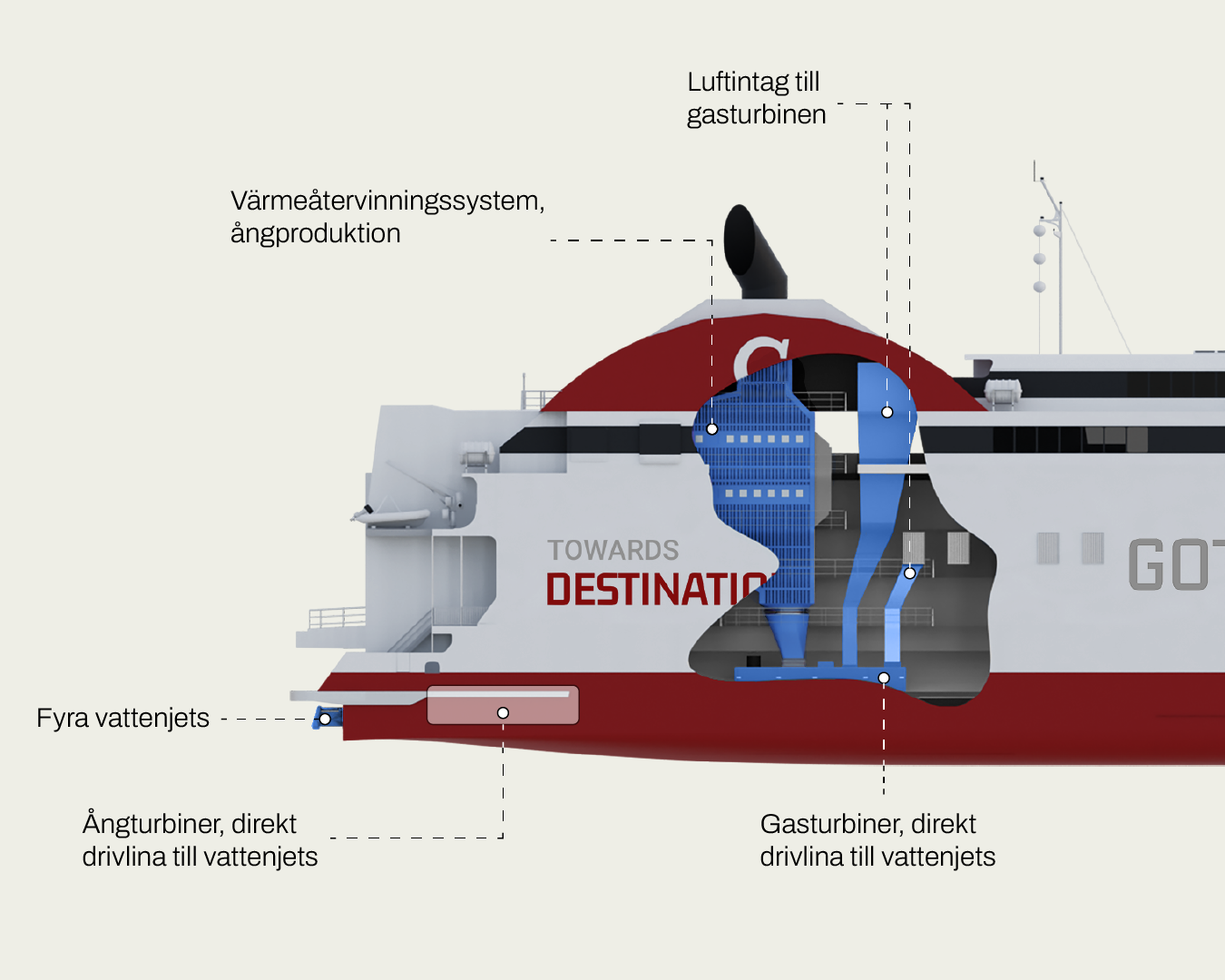Shippax 2024: One fuel does not fit all
During the annual Shippax conference, May 13-15, 2024, leading stakeholders gathered on board the M/S Baltic Queen to discuss the latest advances in shipping, and the next generation of ship design. It is clear that we are in an industry that is moving from using a single fuel - fossil oil - to a technology shift with several different types of energy and fuels depending on local opportunities and conditions. One fuel does not fit all.
/https%3A%2F%2Fgotlandsbolaget.se%2Fwp-content%2Fuploads%2F2024%2F05%2Fenlarge_9a29ed94f61178ecc680876b0722c2db_1280x960-1.jpg)
Marcus Risberg, CEO of Destination Gotland, Christer Bruzelius, and Henry Hammarström from Gotland Tech Development, were there to talk about the design of the fuel system for Horizon X and the next steps in the development of the vessel.
The ambition is to build a machine that is future-proof for different fuels, and which can be powered by biofuels until fossil-free hydrogen is available on a larger scale.
In the picture you can see how a combination of liquid biogas (LBG) and hydrogen can be used to future-proof the ship’s propulsion.
– Hydrogen is clean, energy-rich and can be produced locally. But at present, there is not enough of it to power the Gotland traffic.
Therefore, we need a system that can handle several different fossil-free fuels,” says Christer Bruzelius.

We listened to several initiatives and technology developments to reduce emissions. Because even if there is no common standard, we are working towards the same goal – to reduce the climate impact of shipping and strengthen competitiveness in the EU by 2050. – “It is hopeful to see how concrete measures are beginning to be put in place to reduce shipping emissions, not least the increased demand for fossil-free fuels and sustainable technology.
The climate regulations that have been adopted create the conditions to both adapt and remain competitive,” says Henry Hammarström.
Here are some of our findings:
Electrify where possible It is clear that the electrification we see in other modes of transport will also be part of the shipping transition.
Electrification provides a high efficiency of up to 85% and with fossil-free energy sources, the ship can achieve zero emissions. But it is not for everyone.
It will mainly be passenger ships that operate shorter distances of up to 20-30 nautical miles, (about a third of the distance between Gotland and the mainland), that can use electric power.
Not least as vessels evolve to a lighter design that can maintain high speeds thanks to foil technology.One of the challenges of electrification is the capacity of the batteries and the safety and fire protection requirements, which are very demanding.For larger and heavier vessels traveling longer distances and at higher speeds, battery solutions may be too heavy or take too long to charge, making them less practical.
Flexibility through methanol For more energy-intensive, often longer routes, we see a growing trend around methanol as the fuel of the future.
Not least for deep sea shipping, which operates on the world’s oceans and needs to secure access to fuel on different continents.
Methanol is lighter and can be stored both for longer and in large quantities on board, compared to both LNG and hydrogen. Today, there is far from the supply of methanol that is needed and therefore we now see that several shipping companies are ordering ships that will initially be powered by Heavy Fuel Oil (HFO) / heavy fuel oil but which can be adapted to methanol.
An option that requires scrubbers and other purification techniques until the day that methanol is available, and not an option for those who want to reduce emissions here and now.
Hydrogen lays the foundation for the transition At Gotlandsbolaget, we have taken major steps to develop the Horizon and Horizon X series of vessels that can run on 100% hydrogen, and we are working with several energy producers to develop access to the fuel.
Around Europe, we see several ships in production that can be powered by hydrogen, there are examples from both Estonia and Norway, including a large road ferry that has a combination of battery and hydrogen operation. Hydrogen will play an important role in the production of many fossil-free fuels, as an input for e-fuels, for example.
But producing these also requires biomass, which is in short supply.The advantage of e-fuels is that they are easier to transport and store than hydrogen in its pure form. Navigating towards a greener future This year’s Shippax marked a significant change compared to previous years.
The industry has moved from exploring different options for sustainable fuels to now starting to make decisions on which solutions best meet the needs and ambitions of different stakeholders.
In conclusion, it is clear that shipping is moving towards more flexible energy solutions that can be adapted to more sustainable alternatives when the supply is in place.
However, there is no one-size-fits-all solution.
Different types of fuels will be needed to drive this change forward, underlining the need for a multi-faceted approach to innovation and development in the shipping industry.